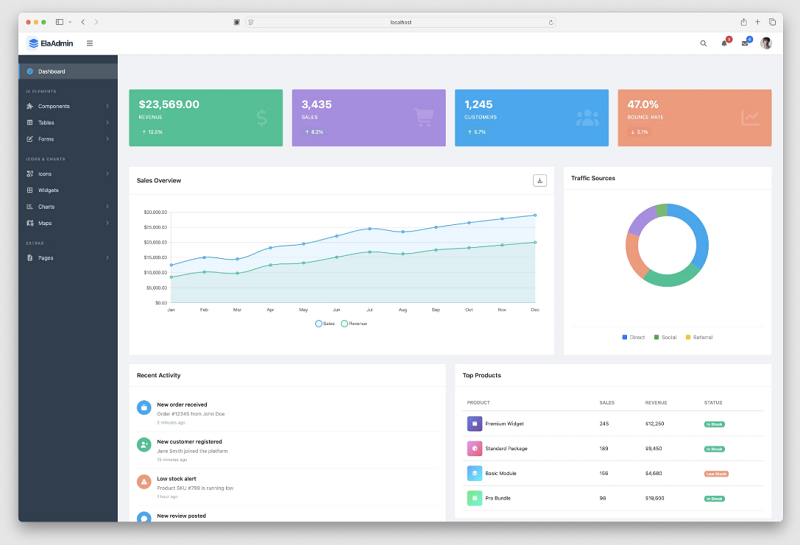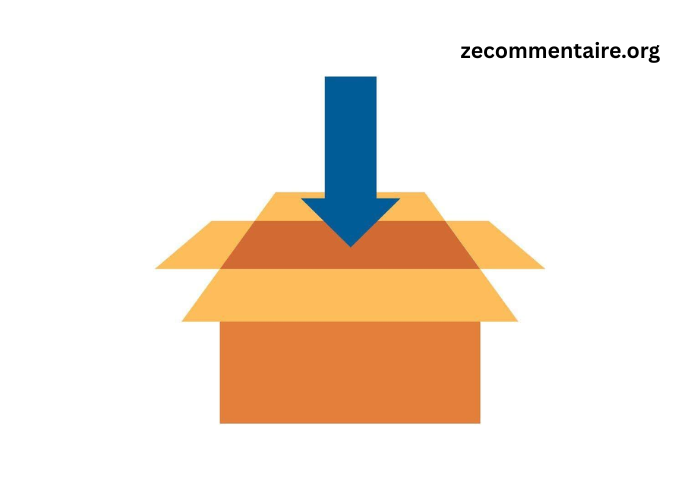Why Billing Innovation Matters More Than Ever
The legal industry is undergoing a major shift. Clients expect transparency, regulators demand tighter compliance, and firms need faster, more predictable cash flow. Traditional billing methods simply can’t keep up. When attorneys enter time inconsistently, when invoices bounce back for corrections, or when billing rules aren’t followed, firms lose money and client trust. That’s why the modern legal e-billing software process has become one of the most important operational upgrades a firm can make.
Today’s systems don’t just produce invoices—they automate compliance, improve timekeeping accuracy, streamline approvals, and give partners real-time financial visibility. They reduce months of billing stress into a clean, repeatable rhythm.
1. LegalTrack
LegalTrack stands out because it fixes the exact problems firms struggle with most: missed time entries, inconsistent reviews, and rejected invoices. The platform’s intuitive interface makes timekeeping simple for attorneys and reduces the amount of backtracking billing staff must do at month-end. Everything flows in a clean sequence, strengthening the e-billing process instead of complicating it.
Its automated compliance engine is one of its core strengths. LegalTrack checks entries against client guidelines, billing rules, and internal standards before a bill ever leaves the firm. This prevents costly compliance mistakes and reduces write-offs. For firms working with demanding corporate clients, this reliability becomes a daily advantage.
LegalTrack also improves communication between attorneys, partners, and billing administrators. Everyone can view billing status, outstanding balances, and monthly progress, making the entire process more transparent and predictable. This shared visibility builds a stronger, more disciplined billing culture across the firm.
Key advantages and important considerations:
- Strong automated compliance and clear workflows
- Could expand deeper financial forecasting options for larger firms
2. CaseVault Billing
CaseVault focuses on giving firms a matter-centric billing environment where attorneys capture time directly from activity logs, research tasks, and client communications. This prevents work from slipping through the cracks and strengthens the foundation of the e-billing process. CaseVault is especially effective for firms juggling multiple active matters simultaneously.
Its billing engine offers flexible fee arrangements, detailed pre-bill reviews, and automated approval chains. Billing teams can move invoices cleanly through each stage, reducing the manual grind typically associated with month-end billing. CaseVault also highlights errors and missing entries before an invoice is finalized.
The platform’s reporting tools provide visibility into case economics, attorney utilization, and billing patterns. This makes CaseVault a strong choice for operationally focused firms that want dependable structure without unnecessary complexity.
Key advantages and important considerations:
- Strong matter-linked time capture
- Reporting options are solid but not deeply customizable
3. NimbusLaw Billing
NimbusLaw provides a clean, cloud-based billing environment that emphasizes ease of use and accuracy. Attorneys can record time from calendars, notes, tasks, or documents, creating a natural workflow that improves the overall e-billing process. NimbusLaw’s simplicity keeps users engaged, minimizing the risk of incomplete timekeeping.
The system supports automated reminders, structured approval paths, and customizable invoice templates. These tools help billing teams complete their work faster and with greater consistency. NimbusLaw also includes client portals for reviewing invoices and making online payments, reducing friction in the collection cycle.
Its analytics suite covers revenue distribution, matter performance, and partner-level insights. NimbusLaw is especially useful for firms adopting cloud systems for the first time and wanting smooth, predictable billing operations.
Key advantages and important considerations:
- Clean and approachable interface
- May be too lightweight for firms with heavy financial requirements
4. Lexora Legal Billing
Lexora blends billing with workflow automation to give firms a connected, intuitive environment. Time entries can be created directly from tasks, drafts, and communication logs, ensuring that financial activity always reflects real work. This helps maintain a consistent e-billing process that firms can rely on.
The platform’s workflow tools automate repetitive billing steps, including reminders, approval routing, and compliance checks. Firms that struggle with inconsistent internal processes often see immediate improvement when adopting Lexora. Its structured approach keeps bill cycles organized.
Lexora’s reports show utilization, revenue trends, matter profitability, and outstanding balances. For firms wanting structure, automation, and clarity, Lexora offers a strong mid-tier solution.
Key advantages and important considerations:
- Strong workflow automation and clean task integration
- Limited customization options for firms needing deeper control
5. TrailBridge Billing
TrailBridge is designed for firms that handle complex, multi-stage matters. Its billing module connects time entries directly to case milestones, deadlines, and deliverables. This creates a transparent e-billing process that mirrors the actual lifecycle of a case.
The platform includes automated quality checks that flag duplicate entries, rate inconsistencies, or incomplete descriptions. Billing teams benefit from fewer correction cycles, and attorneys appreciate the clarity TrailBridge provides in their billing responsibilities. Approval paths are customizable and easy to monitor.
TrailBridge’s dashboards highlight stage-based spending, attorney workload distribution, and financial projections. It’s especially useful for project-based or litigation-driven firms.
Key advantages and important considerations:
- Excellent for multi-stage, structured matters
- Interface feels functional rather than modern
6. LawProFlow Billing
LawProFlow integrates billing directly into firm workflows, making it easy for attorneys to capture time as they complete tasks. Whether they’re drafting documents, reviewing emails, or preparing filings, entries remain connected to real activity. This strengthens the e-billing process by eliminating guesswork.
The system supports automated invoice generation, compliance checks, and reminders for overdue time. Billing staff can quickly identify incomplete entries or discrepancies, reducing delays. LawProFlow’s structure helps prevent last-minute billing chaos.
The platform’s reporting suite focuses on productivity, revenue pacing, and client-level profitability. Its clear visual layout is ideal for firms that want actionable insights without deep financial engineering.
Key advantages and important considerations:
- Strong integration with daily legal workflows
- Limited advanced customization for enterprise clients
7. FirmPilot Billing
FirmPilot offers a design-forward billing environment built to help firms improve efficiency without sacrificing clarity. Time entries can be created from tasks, timelines, and matter activity, giving firms a more accurate e-billing process. Attorneys enjoy the visual layout, which makes the entire experience feel lighter and less burdensome.
Its invoice workflows include drag-and-drop editing, automatic error detection, and partner review tools. FirmPilot simplifies the billing cycle by focusing on user-friendly design rather than overwhelming complexity.
FirmPilot also includes revenue projections, timekeeper utilization reports, and collections dashboards. Firms wanting a modern, easy-to-navigate system often prefer FirmPilot for its simplicity and smooth experience.
Key advantages and important considerations:
- Extremely intuitive, visually modern interface
- Not designed for firms needing deep accounting integration
8. QuantaLegal Billing
QuantaLegal offers a structured solution for firms wanting billing tied to data accuracy and financial control. Its time entry tools reduce the risk of inconsistent timekeeping, helping attorneys maintain better billing habits. This improves the overall e-billing process from start to finish.
The system’s rule enforcement identifies noncompliant entries early, helping firms avoid costly write-downs and rejected bills. Billing teams benefit from the ability to flag problematic entries quickly and request clarification directly through the system.
QuantaLegal’s reports provide insight into revenue growth, client spending patterns, and staff efficiency. For firms balancing multiple practice areas, this visibility makes planning easier.
Key advantages and important considerations:
- Strong rule enforcement and financial clarity
- Interface feels slightly dated compared to newer systems
9. VeritasFlow Legal Billing
VeritasFlow focuses on transparency, giving firms a clear picture of time entries, expenses, and matter-level financials. Attorneys can track billable work using real-time timers, task integration, and document-linked entries. This keeps the e-billing process accurate even during busy periods.
Approval workflows allow billing teams to streamline pre-bill reviews, adding comments or requesting edits without switching platforms. This reduces confusion and keeps month-end processing controlled and predictable. Its built-in compliance tools further reduce errors.
VeritasFlow’s analytics offer performance breakdowns, collection cycles, and utilization metrics. It’s a strong fit for firms wanting accountability and visibility across the board.
Key advantages and important considerations:
- Strong transparency and accountability features
- Could benefit from more integrations with external tools
10. PrimeMatter Billing
PrimeMatter is built for firms that want billing tied directly to deadlines, matter progress, and deliverables. This creates a financial workflow aligned with real case activity, making the e-billing process more accurate and easy to manage. Attorneys avoid the guesswork that often leads to incomplete billing.
Its billing module supports automated compliance checks, customized approval chains, and clear visibility into each pre-bill stage. Billing staff can quickly detect missing entries, incorrect rates, or formatting issues.
PrimeMatter also includes dashboards that show matter economics, cash flow trends, and attorney contribution metrics. For firms wanting structured billing and financial clarity, PrimeMatter is a reliable choice.
Key advantages and important considerations:
- Strong alignment between case movement and billing
- Not ideal for firms seeking highly bespoke billing templates





